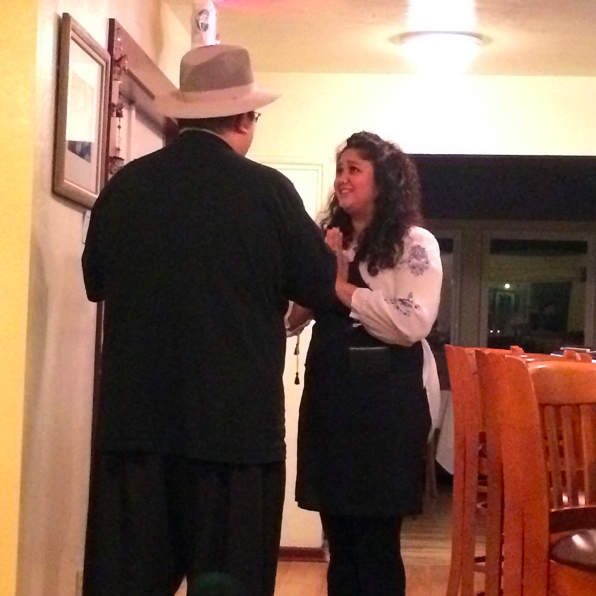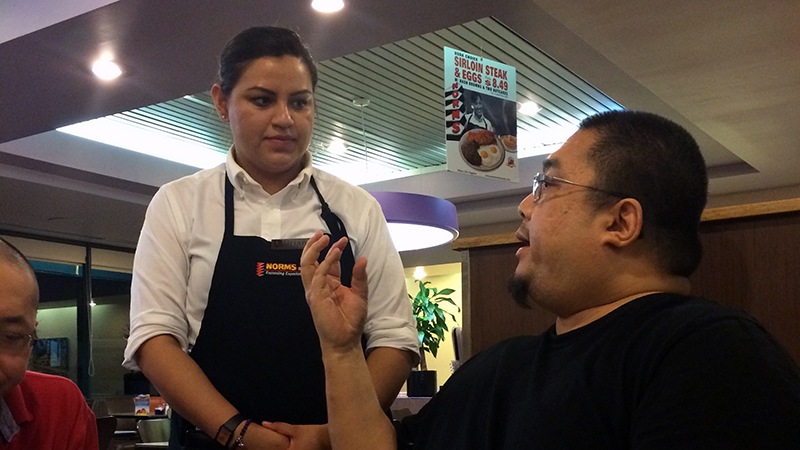Taking (emotional) pain away
March 23, 2020 2
Rinpoche’s life was about taking pain away from people, on the level that worked best for them. This meant that oftentimes, Rinpoche went above and beyond to help others, whether it was physically, emotionally or spiritually. This time, I’m covering the emotional aspect.
All of us carry a lot of baggage, and it is this baggage that can often weigh us down, preventing us from moving on and moving forwards. It is this baggage that, for a lot of us, becomes the underlying reason for why we always seem to create suffering for others, in spite of our best intentions and no matter how much we attempt not to.
So while Rinpoche performed an endless ocean of deeds to alleviate the physical suffering of sentient beings, certainly for me some of the most moving occasions were witnessing the times when Rinpoche took away people’s anger, guilt and grief, and replace it with comfort, security and relief. When grown men sobbed, regretful for the way they treated their wives and children. When mothers cried in thanks for Rinpoche helping to improve their errant children’s behaviour. When people let go of their anger towards those who had harmed them. When they let go of their guilt for not having done enough or not having done more for someone else.
There was something about Rinpoche’s attention (and Rinpoche’s hugs!), always given wholeheartedly, that gave people to space to unburden.
Like the time Rinpoche was at a diner and sensed the server was physically and emotionally tired. We had some flowers in the car that Rinpoche had bought as an offering to Lord Dorje Shugden. Instead, Rinpoche asked us to retrieve the flowers and then presented the bouquet to her. Rinpoche also sat down and had a short chat with her, and she said it was the nicest thing anyone had done for her in years.
It never mattered who a person was or what their background was, because Rinpoche somehow always found a way to relate to them. Whether they were rolling in the big bucks or barely making ends meet; whether they had 10 kids, five kids or no kids; whether they were 60 years old or 5 years old; whether they were happily married for 40 years or moving towards a divorce; Rinpoche always found a way to get through to someone and being near Rinpoche, you soon realised that everyone has problems, no matter how rosy things look on the outside. And it was these problems that they would find a safe haven in Rinpoche to unburden.
But for Rinpoche, all of this unburdening came with a ‘price’. It was not a ‘price’ in the traditional sense of the word because Rinpoche never found it a chore to help someone. Rinpoche never felt that it impeded on him or on something else he wanted to do (because helping people is what Rinpoche wanted to do). It was a ‘price’ in the sense once Rinpoche heard their story, Rinpoche would never, ever forget it. People think that because they have not seen Rinpoche in years, that Rinpoche would forget about them but I have witnessed enough moments to know that that is never the case.
And so the element of ‘price’ comes in where, upon hearing their stories, Rinpoche would feel forever compelled to help someone by whatever means possible. Rinpoche knew, better than most, that once people cried, once they let out their anger, that that moment, however cathartic, was not the end.
Rather, it was the start of a long process of undoing all of the emotional damage they had brought to themselves and others. And so slowly, patiently, Rinpoche would be there with them every step of the way, working with them to work on them. How quickly they healed from their traumas and experiences, and how swiftly they shed their baggage was entirely up to them but knowing Rinpoche was there, poised to catch them whenever they fell, always made it easier.
When I look at photos of Rinpoche’s life, I am struck by how tirelessly Rinpoche worked for the benefit of others. Steadily, unceasingly, unabatedly. How many countless acts of kindness Rinpoche performed throughout his lifetime. Where most people try to place themselves in a perfect and problem-free environment, Rinpoche prayed for the broken, the sick and the weary to come to him. And so the broken, the sick and the weary came and each time, over and over again, Rinpoche welcomed them with open arms and gave them refuge.
Meditating on our lama’s kindness and returning his kindness by way of holding all of his instructions, is the most powerful practice we can do. I am sure that if we sat and quietened our minds, each one of us could come up with many instances of when Rinpoche took away our pain, whether it was physical, emotional or spiritual. Even if we were not the direct recipient of it, we surely know others who were.
After all, my perfect lama was, at the end of the day, the ultimate healer of beings, using his body, speech and mind to deliver the ibuprofen that is Dharma which Rinpoche not only taught but lived, practised and actualised as well.
To my Lama, who is one with Heruka, we look forward to welcoming you home soon.
2 Comments → “Taking (emotional) pain away”
Leave a Reply Cancel reply
Recent Posts
Subscribe to Blog
Categories
Archives
Visitors by Country
| Total Pageviews: | 1 |
|---|






Hi there,
I am sorry this isn’t completely related toward your post– but I am wondering if you can tell me what KIV stands for by Rinpoches words?
I have a fortunate cookie that says, “KIV your hatred, lazines, ego. Walk around light for a while, then go ahead with meditation to get rid of them permanently.”
Thank you…
Hi Erin,
KIV means to “keep in view”. So what Rinpoche meant is to temporarily shelve or set aside our hatred, laziness and ego. To continue to practise whilst acknowledging we still have these traits and realise we are not free from them, and not to allow them to control us, influence our decisions or prevent us from engaging in practice.
Hope that helps 🙂